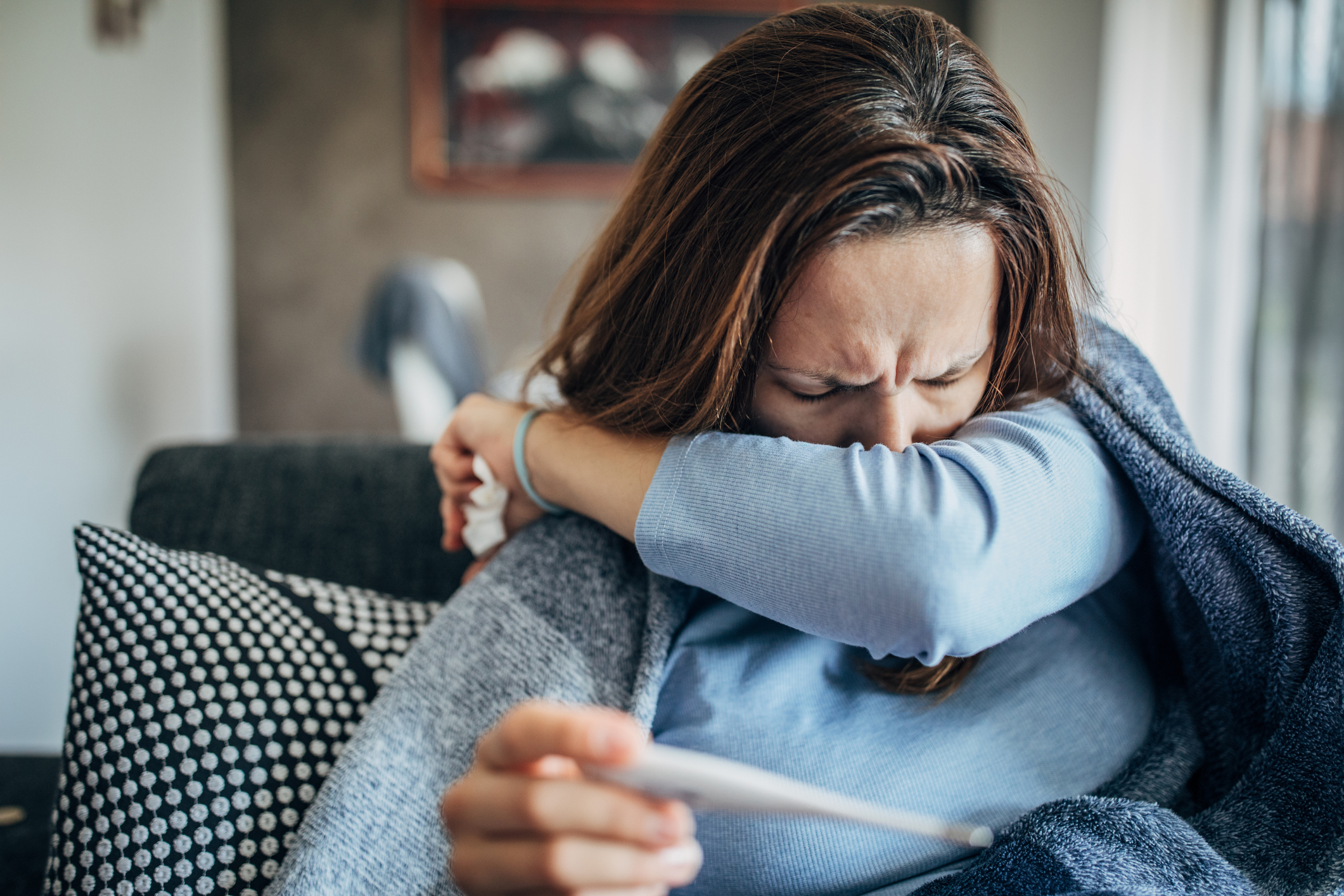As we transition into the colder months of the year, it’s important to be informed and prepared, especially in the face of COVID-19. These seasons are commonly associated with a rise in cases, emphasizing the need for preventive measures and the importance of understanding your health status through COVID-19 testing in Topeka. Learn more about recent COVID-19 developments, including the HV.1 variant. And, explore ways to better protect yourself against the virus with University of Kansas – St. Francis Campus Urgent Care.
A New COVID Variant Is on the Rise: HV.1
The HV.1 variant of COVID-19 has recently emerged as the dominant strain in the United States, accounting for approximately 29% of total infections. This new variant is highly contagious and has swept across the nation only a few weeks after its initial identification.
The HV.1 variant is a descendant of the Omicron variant, which had been the most prevalent strain in the U.S. since late 2021. Two closely related variants, EG.5 and HV.1, now make up roughly half of the COVID-19 cases in the U.S.
The most common symptoms of the HV.1 variant are currently being studied, but it’s clear that it has a significant impact on public health. The Centers for Disease Control and Prevention (CDC) have been monitoring the variant since its appearance in low numbers over the summer, and now it has become the strain with the highest transmission rate.
Understanding the Seasonal Increase in COVID-19 Cases
COVID-19, much like influenza and other upper respiratory viruses, circulates all year long but picks up in fall and winter. This pattern is largely due to the virus thriving in colder, less humid conditions. In addition, groups spending more time indoors leads to closer contact and increased transmission risk.
Preventing COVID-19 Infection in Fall and Winter
Prevention remains our best defense against COVID-19. Here are some practical ways to protect yourself and others:
- Social Distancing: Keeping a safe distance from others can minimize the risk of transmission.
- Mask Wearing: Masks, particularly in indoor settings, can help reduce the spread of the virus.
- Hand and Respiratory Hygiene: Regular handwashing or using hand sanitizers can kill the virus. Covering your mouth and nose when coughing or sneezing can also prevent the virus from spreading.
- Staying Home When Possible: Limiting unnecessary outings can further reduce the risk of exposure to the virus.
- Vaccination: The CDC recommends staying current with 2023-2024 updated COVID-19 vaccines.
COVID Testing in Topeka
Early detection is crucial in managing the virus and protecting those around you, making COVID-19 testing an essential part of your COVID-19 preventive strategy. This is why University of Kansas – St. Francis Campus Urgent Care offers rapid COVID testing in Topeka. These testing procedures are designed to provide accurate and timely results.
Depending on your needs, we offer rapid antigen tests and polymerase chain reaction (PCR) tests. The process is simple and straightforward, and our team is always available to answer any questions you may have concerning your test.
Virtual Visits: Safe and Convenient Care
To avoid unnecessary visits to the clinic, University of Kansas – St. Francis Campus Urgent Care provides telehealth care services. If you choose a virtual visit, be sure to have your ID and insurance card ready while you secure your position in the queue. This service allows you to consult with a health professional from the comfort of your home, analyze your symptoms, and get advice on the next steps, including whether you need a COVID-19 test.
Together, We Can Curb the Spread of COVID-19
As we navigate another fall and winter season, it’s essential to stay vigilant. Follow prevention measures, understand the importance of COVID-19 testing, and make use of telehealth services when needed.
If you need fast and effective COVID testing in Topeka, check-in online to save your place in line. And, if you begin to experience COVID-like symptoms, consider a virtual visit to receive care in the comfort of your home. By taking these steps and staying proactive, you can help to reduce the spread of COVID-19 and keep your community safer this season.
